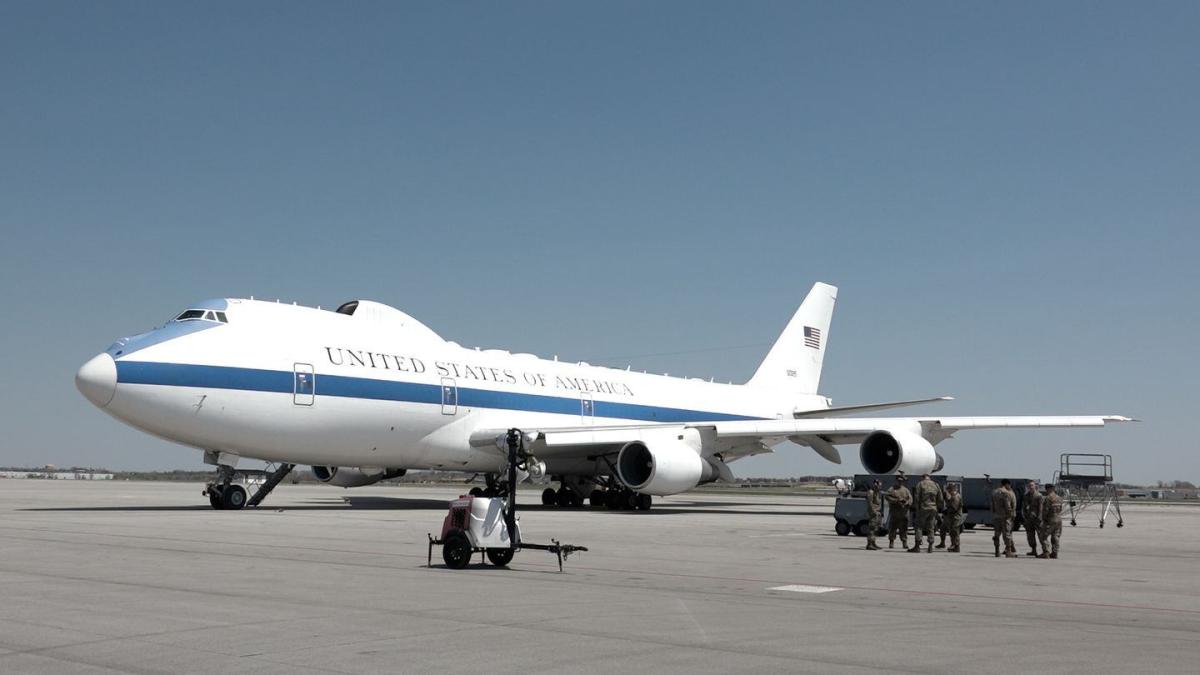The Department of the Air Force on Friday said it awarded Sierra Nevada Corp. a $13 billion contract to replace the service’s aging E-4B Nightwatch “doomsday planes” that would fly during a nuclear war.
The company will develop and produce the Survivable Airborne Operations Center, the name for the aircraft that will succeed the E-4B, and is expected to finish the work by July 10, 2036. The Air Force is obligating $59 million in research, development, test and evaluation funds to Sierra Nevada to start work on SAOC right away.
“The development of this critical national security weapon system ensures the department’s nuclear command, control, and communications capability is operationally relevant and secure for decades to come,” an Air Force spokesperson said in an email.
The E-4B, officially referred to as the National Airborne Operations Center, is designed to allow the president to direct forces in the event of a nuclear war or other devastating emergency that destroys command-and-control centers on the ground. The Air Force’s four E-4s have been flying since the 1970s and are approaching the end of their service lives.
Sierra Nevada’s contract to develop and produce SAOC will cover the delivery of engineering and manufacturing development aircraft, production aircraft, associated ground systems, and interim contract support, the Pentagon’s contract announcement said. The company will perform work on SAOC in Englewood, Colorado; Sparks, Nevada; Beavercreek, Ohio; and Vandalia, Ohio.
The Air Force said Sierra Nevada will build SAOC out of a hardened and modified version of a commercial derivative aircraft. And it will use a modular open system approach to include modern secure communication and planning capabilities.
SAOC’s ground support systems will include trainers for aircrew, mission crew, and maintainers, as well as ground support equipment, test and sustainment system integration laboratories, and other systems.
The contract includes cost-plus-incentive-fee, fixed price incentive and cost-plus-fixed-fee components, the Pentagon’s contract announcement said.
